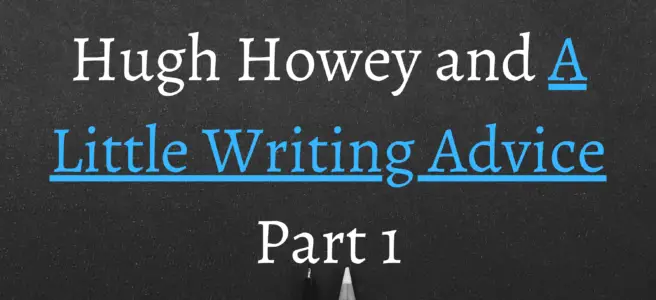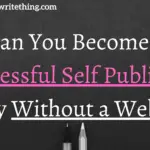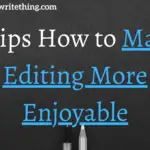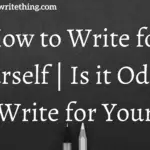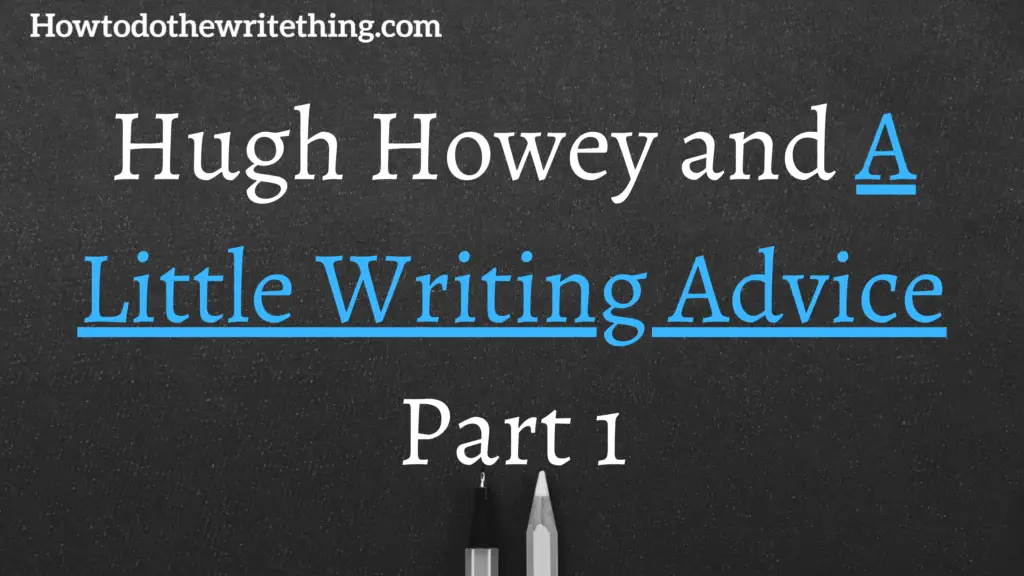
Hugh Howey and A Little Writing Advice Part 1
Ever heard of Hugh Howey. He is a successful Indie writer of the Silo Saga: Wool, Shift, and Dust.
He started off self-publishing but eventually was sought out by Simon & Schuster. Kind of a writer’s dream type of story. (Word has it he took some time to sail the seas of the world as a successful author. What would you do?)
He has some posts on his blog that are so valuable, he probably could have just written them into a writing advice book and sold it, but thankfully for us, he gave it to the public. Yay!
He decided to give back in a way and to give advice that he wished he would have had just starting out. Even as an author that has sold millions of copies of his stories he still writes humbly and speaks about how he was always figuring things out then and still has to work to figure things out now.
Hughey gives his advice as a successful author that wishes he had such advice starting out and we are going to dive into that.
Watch out for over analyzation.
Do you feel like this? “I sit down to write my novel and it feels like I’m pulling teeth.”
“I stare at my screen for hours not knowing where to start.”
“I get so worried about what other people will think of my writing that I can’t seem to get many words out. I feel like they are all bad.”
Isn’t that just it? We get so caught up in thinking about what others will eventually think of our writing that we get paralyzed in overanalyzing every single word.
Hugh speaks into this directly, “…when we sit down to write a novel, we trip over our words as we try too hard to sound like someone we aren’t. I don’t know why we do this in the beginning, but the sooner we get over the impulse, the better.”
Writing exercise: Instead of focusing on writing something for others take 15 minutes and journal. Allow yourself to just write for yourself first and stop worrying about writing for others for the moment.
Click to Tweet, We get so caught up in thinking about what others will eventually think of our writing that we get paralyzed in overanalyzing every single word.
Interested in starting a blog of your own? Check out Bluehost.
Don’t try to sound like someone else.
You might be thinking something like this, “Popular writing advice tells me to write in my own voice, but I don’t even know what that really means!”
Finding our own voice is not as tough as we think.
Did you write a text today? Did you talk over the phone with a friend? Did you write an email or a social media post?
Anytime we write a message to someone else without thinking too much into how we sound is part of what our voice sounds like in writing. As we go through life we learn more words and we use more or less slang, but as we go our voice ebbs and flows through the seasons. You will probably never have just one way that you sound your entire lifetime.
As a writer, you’ll have some seasons where you use words like, “probably, maybe, and some” a lot, but in other seasons you might see this on the page and decide you want to expand that part of your vocab.
In some seasons you’ll be more descriptive. In others, you’ll decide to write more simply.
We don’t have to worry much about our writer’s voice as much as we do the message that we are trying to get across and how it is delivered.
Listen to Hugh, “The best way to kill your chances as a writer is to attempt to write like one. We all fall into this trap. When pounding out a Facebook post, or a comment on a forum, or an email to a friend, we write like the wind. The words tumble right out, and the meaning we hope to convey is succinct and clear…Write that rough draft as though you’re composing an email to a friend about a story you heard. Use your own voice. The subtleties and nuances of this voice will grow over time. For now, keep it simple.”
Think about that the next time you sit down to write a short story or to work on your novel.
Be sure to be more concerned about getting your story out instead of worrying about individual word choices and whether or not each sentence is good.
Click to tweet, When you sit down to write your story, try to just get the message out and worry less about overanalyzing specific word choices. Just write as if you were telling a story to a friend when working on the first draft.
Click to tweet Remember, no one sees the first draft but you. So just write it. Don’t overanalyze the first draft.
Do not be lazy about cleverness.
Of course this “just get it out on the page” advice must come with a grain of salt.
Help us out here Hugh, “That doesn’t mean you shouldn’t be creative, or witty, or use the fullness of your vocabulary. It just means that you shouldn’t strain yourself as you write your rough draft. You shouldn’t try too hard to be flashy.”
Don’t be lazy. Do good research. Continue to try to be witty, fun, and entertaining. Whatever genre you’re writing in be sure to hit the entertaining factors of that genre.
You don’t have to be flashy to do this. You can still write a decent first draft without using words nobody has ever heard of. In fact, we recommend that most stories be written around an 8th-grade reading level, even if it’s meant for adults. Using flashy big vocabulary words won’t just make you a better writer. It could make you a worse writer. Source.
Interested in starting a blog of your own? Check out Bluehost.
Hugh Howey and A Little Writing Advice Part 1
Enjoying Hugh Howey and A Little Writing Advice Part 1? Take a moment and consider sharing this social-friendly image to say thanks and feel free to comment with your thoughts below! 🙂

Interested in starting a blog of your own? Check out Bluehost.
After checking out Bluehost, see how we made a profit FAST with our blog and how you can too: Our #1 Easy way that we made a profit with our blog on year 1, not year 5.
Need a Cheaper Plan? Try DreamHost.
Try Grammarly, The Free tool that should be in every writer’s toolbelt.
Hope this helps!
Happy writing!
Another Post you Might like:
Mythical Creatures | 7 Tips on How to Write Mythical Creatures
Other Popular Posts you might enjoy:
5 Tricks How to Hide Your Villain Right Before Their Eyes
10 Tips How to Write Villains that Play Mind Games with Their Victims
4 Tips How to Write your Character Hitting Rock Bottom
10 Toxic Bad Habits That’ll Crush Your Fictional Character’s Relationships
How to Write From Your Villain’s Mind.
This post:
Hugh Howey and A Little Writing Advice Part 1
Make sure your posts are readable. Use this readability score check
Want to check out a writer’s community to test your writing and get feedback?
Hugh Howey and A Little Writing Advice Part 1
Enjoying Hugh Howey and A Little Writing Advice Part 1? Take a moment and consider sharing this social-friendly image to say thanks and feel free to comment with your thoughts below! 🙂
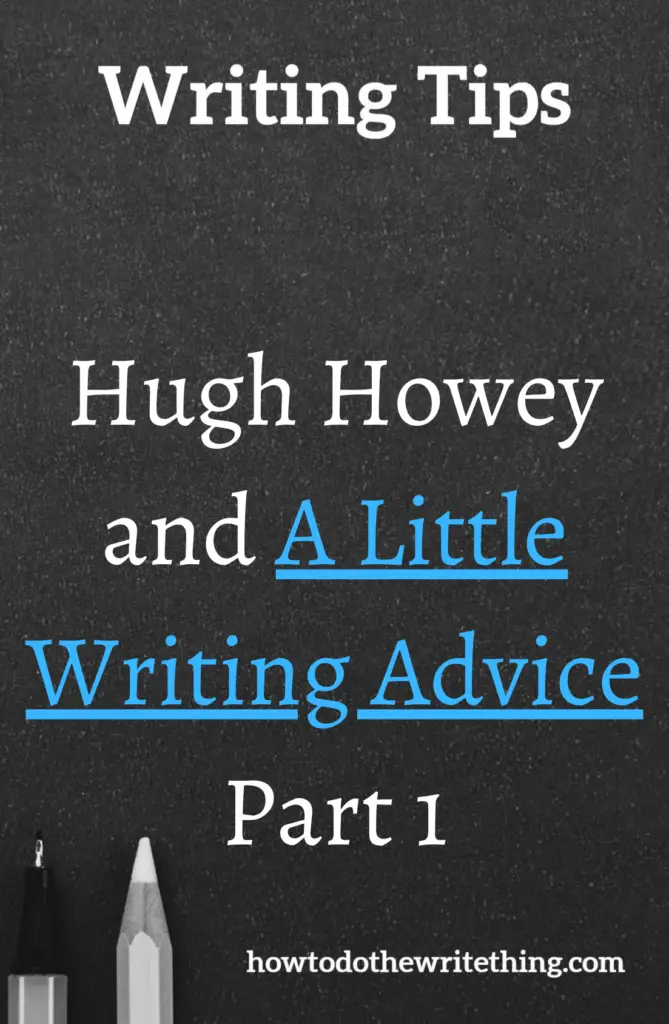
Check out these FREE trial resources from Amazon for when you work from home (or are stuck at home 🙂 ) As an Amazon associate, if you do sign up or buy anything using Amazon links from our site we make a commission at no extra cost to you.
Free Prime Membership Trial:
Try Amazon Prime 30-Day Free Trial
Try Prime Discounted (Free Trial)
Make your Free Amazon Wedding Registry:
Create an Amazon Wedding Registry
We hope you enjoyed: Hugh Howey and A Little Writing Advice Part 1!
